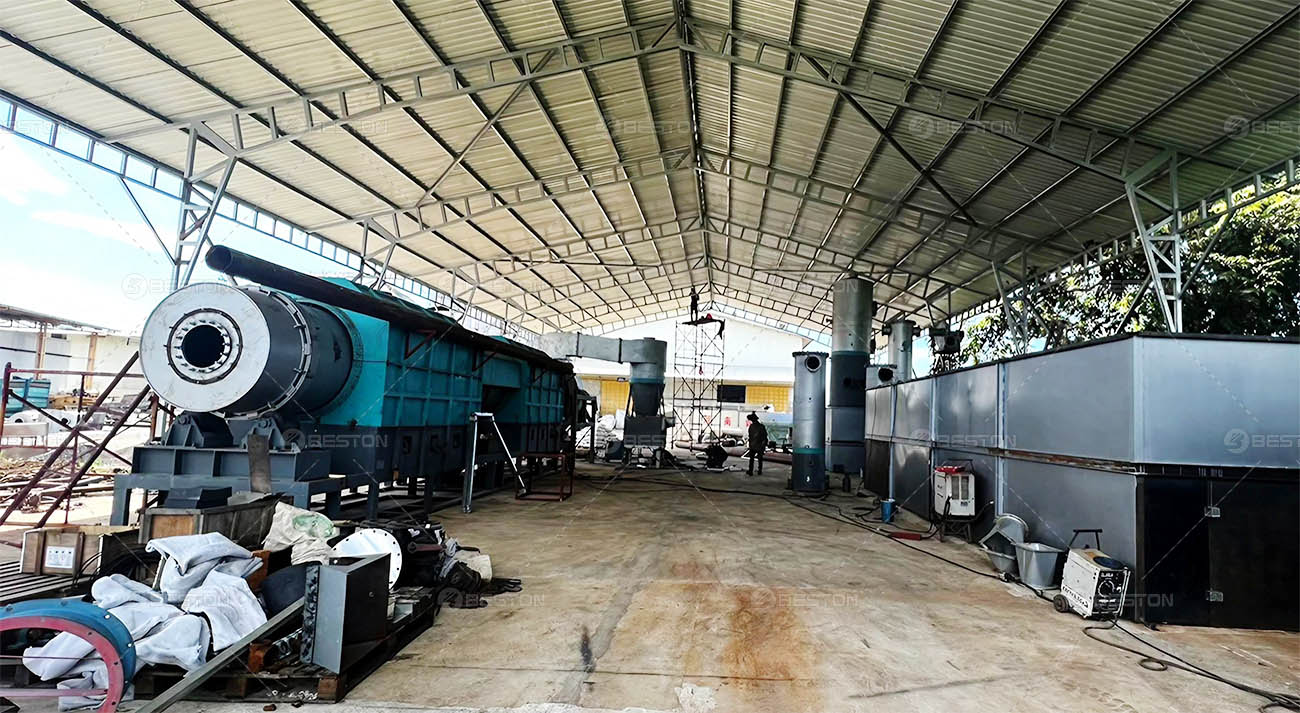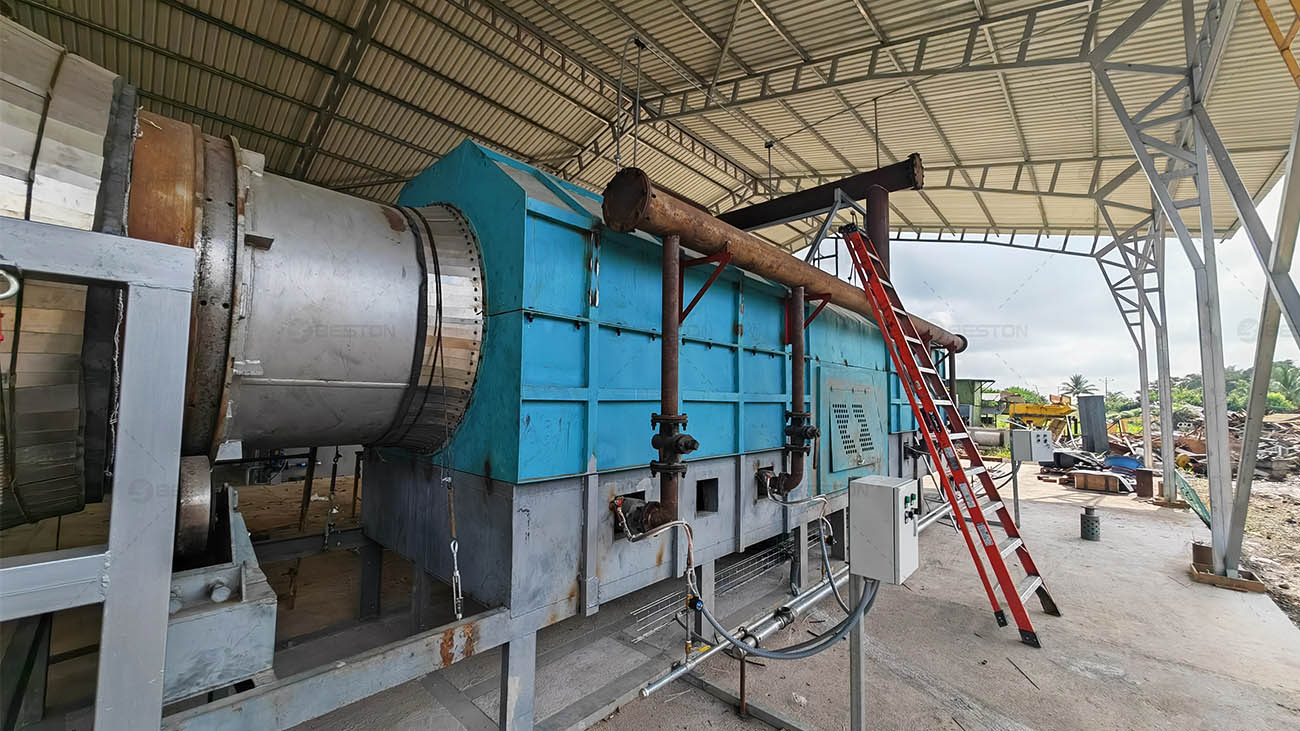Coconut shell charcoal production has emerged as a profitable and sustainable industry, driven by the growing demand for eco-friendly energy solutions and industrial applications. Leveraging a coconut shell charcoal machine allows for the efficient conversion of abundant agricultural waste into a high-value product, offering multiple economic benefits. Below is an analysis of how this process generates revenue and drives economic growth.

Value Addition to Agricultural Waste
Coconut shells, a byproduct of coconut processing, are often discarded or underutilized in many regions. Transforming these shells into charcoal significantly increases their value.
- Waste Management Savings: By utilizing coconut shells as raw material for coconut shell charcoal machine, producers reduce the costs associated with waste disposal and contribute to cleaner environments.
- Charcoal Demand: Coconut shell charcoal has high calorific value, low ash content, and minimal emissions, making it a preferred fuel for industries, households, and barbecue markets. This consistent demand ensures stable income streams for producers.
Converting waste into marketable charcoal exemplifies the circular economy, promoting resource efficiency and reducing waste.
Diverse Applications and Market Expansion
Coconut shell charcoal serves a wide range of industries, creating opportunities for market diversification.
- Industrial Uses: It is widely employed in metallurgy, foundries, and chemical production due to its superior heat generation and low sulfur emissions.
- Activated Carbon Production: Coconut shell charcoal is an ideal precursor for manufacturing activated carbon, used extensively in water purification, air filtration, and gold recovery. This premium product commands higher market prices, enhancing profitability.
- Household and Recreational Markets: The smokeless combustion of coconut shell charcoal makes it popular for cooking and recreational uses, especially in regions with a strong barbecue culture.
Catering to diverse markets enhances revenue potential while mitigating risks associated with fluctuating demand in any single sector.
Cost Efficiency in Production
The method how to make coconut shell charcoal is quite critical. The production process, particularly with modern equipment, is designed for cost efficiency.
- Low Raw Material Costs: Coconut shells are readily available in tropical regions, often at little to no cost, which minimizes input expenses.
- Energy Efficiency: Advanced coconut shell charcoal machines are equipped with energy recovery systems, allowing producers to reuse heat and syngas generated during pyrolysis. This reduces energy expenses and improves profitability.
- Automation: Fully automated machines streamline operations, lower labor costs, and enhance output consistency, making production more efficient and scalable.
These cost efficiencies allow producers to maintain competitive pricing while maximizing margins.
Employment and Regional Economic Growth
Coconut shell charcoal production creates direct and indirect employment opportunities, particularly in coconut-rich regions.
- Job Creation: The industry supports jobs in raw material collection, machine operation, and logistics. Additionally, small-scale producers often hire local labor, contributing to regional income generation.
- Boosting Local Economies: By establishing processing facilities in rural areas, the industry stimulates local economic activity, supports ancillary businesses, and reduces rural-urban migration.
This labor-intensive yet scalable industry has a significant impact on the socio-economic development of coconut-producing regions. For more coconut shell production project planning, please contact: https://bestonmachinery.com/
Environmental and Regulatory Benefits
Sustainable production practices attract regulatory incentives and enhance brand reputation.
- Carbon Offset Opportunities: The production of coconut shell charcoal can contribute to carbon sequestration efforts. Activated carbon derived from coconut shells is particularly valued for its role in reducing air and water pollution.
- Incentives for Green Projects: Governments often provide financial support or tax exemptions for environmentally sustainable initiatives. Producers can capitalize on these incentives to reduce operating costs.

Adopting eco-friendly practices aligns with global sustainability goals while improving economic viability.
Scalability and Export Potential
Coconut shell charcoal production is scalable, allowing small producers and large enterprises alike to participate in the market.
- Small-Scale Operations: With compact and cost-effective coconut shell charcoal machine price, small businesses can cater to local markets and grow incrementally.
- Export Opportunities: Countries like Indonesia, the Philippines, and India dominate global coconut production and have a competitive advantage in exporting coconut shell charcoal. High demand in regions such as Europe and North America provides significant export revenue potential.
Investors can scale their operations based on market demand and technological advancements.
Conclusion
Coconut shell charcoal production is a lucrative venture with extensive economic benefits. From adding value to agricultural waste and reducing production costs to creating jobs and penetrating diverse markets, the industry holds immense potential. The adoption of a coconut shell charcoal machine ensures operational efficiency, cost-effectiveness, and scalability. As global demand for eco-friendly products grows, investing in this industry offers substantial financial returns while fostering environmental sustainability.